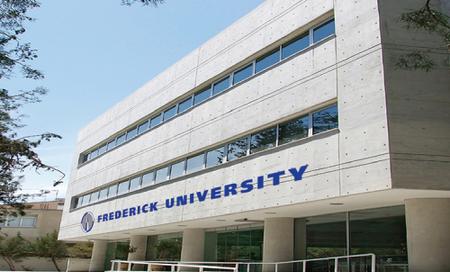Information
Department
School of Sciences and Engineering
Additional Information
Aims
The aims of the MSc in Electrical Engineering are to:
- Prepare students to succeed in a constantly growing, highly demanding and competitive technological world;
- Create an academic environment conducive to learning new technologies and engineering concepts;
- Introduce students to research on advanced engineering topics;
- Cultivate analytical skills and critical thinking;
- Provide specialization and extensive knowledge on the areas of concentration;
- Promote engineering ethics and moral practices.
Objectives
The objectives of the programme are to:
- Provide specialized advanced knowledge and tools to our graduates in order to cope successfully in a technologically challenging environment;
- Facilitate learning in areas of electrical engineering that are directly linked to industry and current state-of-the-art technology;
- Provide the theoretical and computational skills necessary for the solution of both theoretical and practical engineering problems;
- Provide practical and experimental hands-on experience that allows the students to link directly to fundamental knowledge and theory;
- Prepare graduates to work alone or in groups in order to provide engineering solutions;
- Prepare graduates to design/implement systems and processes towards the solution of engineering problems;
- Promote research, develop research skills and provide fundamental knowledge to support a successful career in research and development;
- Develop the ability of the graduates to write technical reports and scientific papers as well as to present their work before an audience;
- Provide the graduates with the opportunity to develop a greater technical competence in their area and become successful professionals throughout their lifetime;
- Prepare graduates for admission to a PhD program in electrical engineering.
Career Prospects
Graduates of the Masters’ programme can be employed in a number of sectors including:
- Private companies;
- Public organizations;
- Semi-government organizations;
- Universities and colleges;
- Research institutions;
- Technical high schools and professional training schools;
- Telecommunications companies;
- Army, navy, and defense companies;
- Radar and monitoring system facilities
Access to Further Studies
Graduates of the programme have direct access to 3rd cycle studies (PhD), at this or a related field, at the University of Nicosia or other institutions in Cyprus, the EU and the USA/Canada.
Program
Semester 1
- Probability and Random Processes
- Antennas for Wireless Communications
- Digital Communications
- Thesis Research I
Semester 2
- Fiber Optics
- Electric Power Generation, Transmission and Distribution
- Renewable Energy Sources and Technologies
- Thesis Research II
Semester 3
- Advanced Computer Networks
- Adaptive Signal Processing
- Graduate Seminars
- Thesis Research III
Recommended Programs
News

UNIC Students Win Cyprus Final of …
Mar 04, 2025

University of Nicosia Ranks #1 in …
Jan 27, 2025

UNIC Health faculty recognized among world’s …
Jan 14, 2025

UNIC’s IFF Executive Director George Giaglis …
Oct 04, 2024







